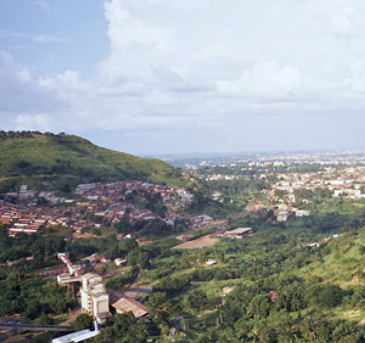TOURISM
Anambra State derives its names from the Anambra River, which is one of the tributaries of the River Niger. Hills, Erosion sites, Lakes, Caves, Forest Reserves and Tablelands constitute some of its very attractive natural features.
The new Anambra state came into being on August 27, 1991 following the creation of Enugu and new Anambra states out of the former Anambra state. Its capital in the ancient city of Awka, is an internationally renowned center for carving and blacksmithing.
The climate of Anambra state is tropical with an average temperature of about 800F. The area has two distinct seasons; the dry season (November-March) and the wet season (April-October). The best holiday period is from October to April of the following year. Anambra state is naturally endowed with rich cultural, historical, traditional, environmental and archaeological features, which rank higher than most other tourist centers in Nigeria.
The state has a unique attraction in Nigeria. It is the cradle of Igbo civilization, the embodiment of resource fullness and exemplary creativity. The historical relies of Igbo-Ukwu bronze and Nri hegemony, the Niger bridge gateway.
PARKS, HOTELS AND HOLIDAY RESORTS
Anambra state is endowed with parks, beaches, forest reserves and game reserves, which have great potential as holiday resorts. These include the following:
- Kenneth Onwuka Dike Park in Awka
- Nkisi Boat yard near the River Niger in Onitsha
- Mamu Forest reserve in Orumba North Local Government Area
- Otuocha Sand Beach in Anambra East Local Government Area
- An Ultra-modern Amusement park, Amawbia in Awka capital
- Rojenny Tourist Village Oba, Idemili Local Government Area


